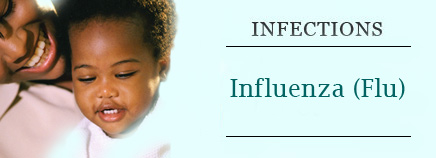What It Is The hepatic function panel, also known as liver function tests, is a group of seven tests used to evaluate the liver for injury, infection, or inflammation. The liver plays important roles: It stores energy from food, makes proteins, and helps remove toxins. The liver also makes bile, …
Stool Tests
About Stool Tests Stool (or feces) is usually thought of as nothing but waste — something to quickly flush away. But bowel movements can provide doctors with valuable information as to what’s wrong when a child has a problem in the stomach, intestines, or another part of the gastrointestinal system. …
Strep Test: Throat Culture
What It Is A throat culture or strep test is performed by using a throat swab to detect the presence of group A streptococcus bacteria, the most common cause of strep throat. These bacteria also can cause other infections, including scarlet fever, abscesses, and pneumonia. A sample swabbed from the …
Urine Tests
Doctors order urine tests for kids to make sure that the kidneys and certain other organs are working as they should, or when they think that a child might have an infection in the kidneys, bladder, or other parts of the urinary tract. The kidneys make urine (pee) as they …
Adenovirus
About Adenovirus Infections Adenoviruses are a group of viruses that can infect the membranes (tissue linings) of the respiratory tract, eyes, intestines, urinary tract, and nervous system. They account for about 10% of fever-related illnesses and acute respiratory infections in kids and are a frequent cause of diarrhea. Adenoviral infections …
Bronchiolitis
About Bronchiolitis Bronchiolitis is a common illness of the respiratory tract. It’s caused by an infection that affects the tiny airways, called the bronchioles, that lead to the lungs. As these airways become inflamed, they swell and fill with mucus, which can make breathing difficult. Bronchiolitis: most often affects infants and …
Croup
About Croup Croup is a condition that swells and irritates the upper airways. The same viruses that cause the common cold also cause croup, and most cases happen in the fall and early winter. Kids with croup have a telltale “barking” cough (often compared to the sound of a seal’s …
Diphtheria
About Diphtheria Diphtheria is a bacterial infection that spreads easily and occurs quickly. It mainly affects the nose and throat. Children under 5 and adults over 60 years old are particularly at risk for contracting the infection. People living in crowded or unclean conditions, those who aren’t well nourished, and …
Influenza (Flu)
Influenza, commonly known as “the flu,” is a highly contagious viral infection of the respiratory tract. It affects all age groups, though kids tend to get it more often than adults. In the United States, flu season runs from October to May, with most cases happening between late December and …
Measles
About Measles Measles, also called rubeola, is a highly contagious respiratory infection that’s caused by a virus. It causes a total-body skin rash and flu-like symptoms, including a fever, cough, and runny nose. Though rare in the United States, 20 million cases happen worldwide every year. Since measles is caused …










